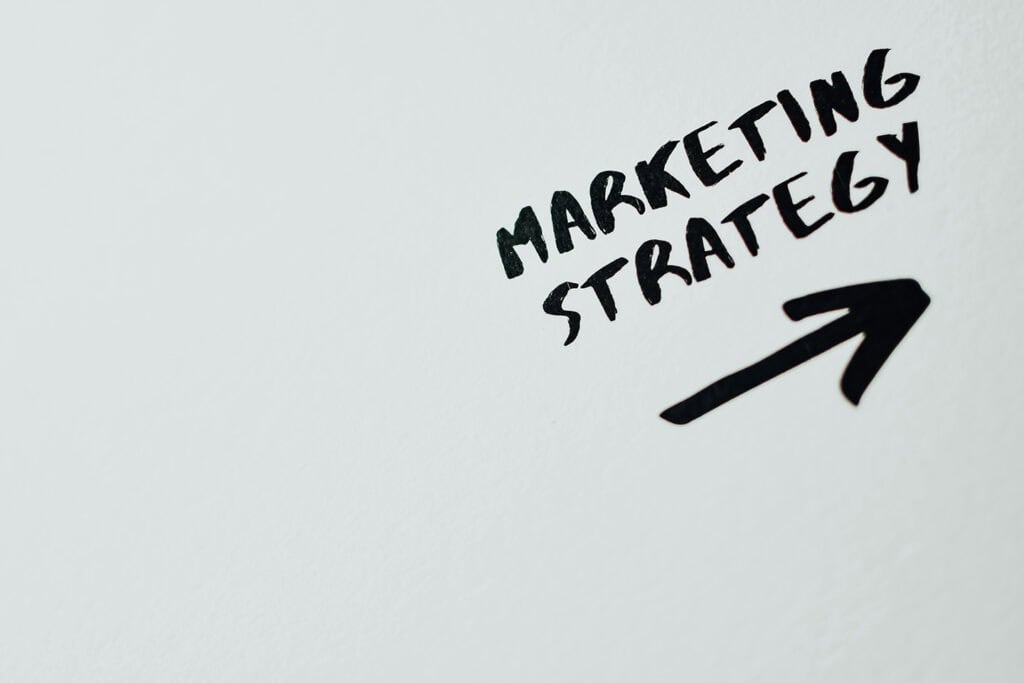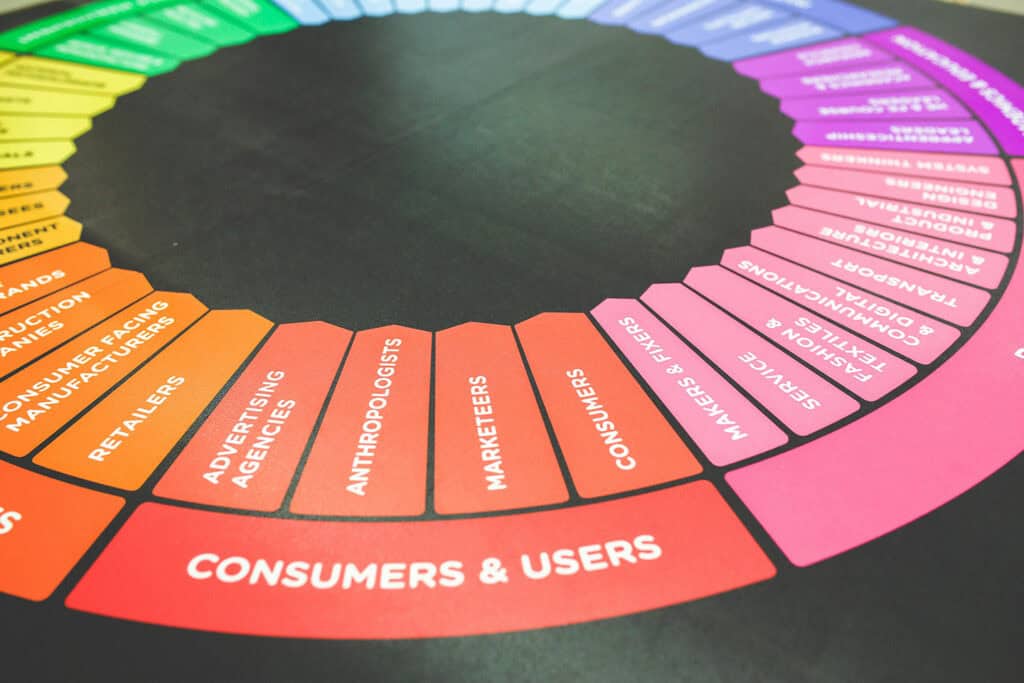
Are you feeling uncertain about your career path in marketing?
You’re not alone. Many professionals grapple with setting clear and achievable goals that align with the fast-paced and ever-changing landscape of the marketing industry. But don’t worry; your journey to a successful marketing career is about to become clearer.
In this article, we’ll explore the importance of setting career goals in marketing, detailing the benefits and specific strategies that can elevate your professional journey.
By establishing well-defined goals, you can enhance your skills, stay updated on industry trends, and ultimately achieve greater job satisfaction and career growth.
Let’s go!
Here are 6 marketing career goals:
- Personal Branding and Networking: Build a strong personal brand and expand your network to create new opportunities in marketing.
- Lead a Marketing Team: Aim for a leadership position to manage a team and drive effective marketing strategies.
- Lead a Successful Product Launch: Take charge of launching a product, coordinating teams for maximum market impact.
- Develop Data Analysis Skills: Enhance your ability to analyze data for informed decision-making in marketing.
- Obtain Relevant Certifications: Pursue certifications to demonstrate expertise and boost career advancement.
- Launch Successful Campaigns: Create marketing campaigns that meet key performance indicators and drive customer engagement.
See also Career Goals for College Students: 6 Essential Strategies to Achieve Your Dream Job
Importance of Setting Career Goals in Marketing

Setting career goals in marketing is crucial for career and wealth growth. It helps professionals align their career path with the dynamic marketing industry, focusing on digital marketing and social media strategies.
By setting goals at work, marketing and sales teams can develop effective marketing campaigns that boost a company’s success. Tracking industry trends and attending industry events enhances knowledge, keeping professionals updated on market trends.
These goals also help career growth by providing clear milestones in the professional journey. Ultimately, goal setting is vital for adapting to the ever-evolving marketing industry and ensuring long-term success and satisfaction in one’s career.
Here are 10 benefits of setting career goals for marketing:
- Clear Career Path: Provides direction and focus, helping you navigate your professional journey in marketing.
- Skill Development: Encourages continuous learning and enhancement of marketing skills, particularly in digital marketing and social media.
- Industry Awareness: Keeps you updated with the latest marketing trends and strategies by attending industry events and monitoring market trends.
- Increased Productivity: Helps set priorities and manage time effectively, leading to better performance and productivity.
- Motivation and Drive: Sets clear milestones, motivating you to achieve and surpass them.
- Enhanced Marketing Campaigns: Improves the quality and effectiveness of marketing campaigns, contributing to the company’s success.
- Career Growth: Facilitates promotions and career advancements by demonstrating your commitment to professional development.
- Job Satisfaction: Achieving set goals provides a sense of accomplishment, increasing job satisfaction.
- Networking Opportunities: Encourages participation in industry events, expanding your professional network.
- Adaptability: Prepares you to adapt to the ever-changing marketing landscape.
Best Career Goals for Marketing

Setting well-defined goals in marketing is essential for career growth and maintaining work-life balance. Focus on acquiring new skills, such as data analysis and public speaking, to enhance your professional capabilities.
Pursue strategic initiatives that drive your career forward and support personal growth. Consistently maintaining focus on your objectives ensures steady progress and success in the marketing field.
Achieving a balance between work and personal life helps long-term satisfaction and productivity in your marketing career.
Here are 6 career goals for marketers:
1. Personal Branding and Networking

Personal branding and networking are crucial components of a successful marketing career. Establishing a strong brand presence helps distinguish you in the competitive marketing world. Conduct market research to refine your personal brand and ensure it aligns with industry trends.
Building a professional network with industry leaders and peers can open doors to new opportunities and insights. For a marketing manager, leveraging digital marketing techniques enhances your marketing efforts and visibility.
Networking aids in career path development, allowing you to connect with mentors and collaborators who can support your growth in the marketing industry.
Here are 10 techniques for building personal branding and networking:
- Stay Updated with Trends: Continuously learn and adapt to new industry trends and technologies to remain relevant and informed.
- Create a Strong Online Presence: Develop a professional website and maintain active profiles on social media platforms like LinkedIn to showcase your expertise and achievements.
- Engage in Industry Events: Attend conferences, webinars, and workshops to meet industry leaders and peers, expanding your professional network.
- Publish Quality Content: Write blogs, articles, or produce videos that highlight your knowledge and skills, positioning yourself as an expert in your field.
- Network Consistently: Regularly connect with professionals in your industry through social media, emails, or in-person meetings to build and maintain relationships.
- Seek Mentorship: Find mentors who can provide guidance, support, and valuable industry insights, helping you navigate your career path.
- Participate in Online Forums: Join and contribute to industry-specific groups and forums to stay updated on trends and engage with other professionals.
- Collaborate on Projects: Work with other professionals on projects to build relationships, gain new skills, and enhance your personal brand.
- Personalize Your Brand: Define your unique value proposition and consistently communicate it across all platforms to distinguish yourself from others.
- Leverage Testimonials and Endorsements: Collect and showcase recommendations from colleagues and clients to build credibility and trust.
See also HR Career Goals: 9 Paths to Professional Excellence
2. Lead a Marketing Team

Leading a marketing team requires a blend of strategic vision and effective communication skills. Utilize a Career Goals Worksheet to outline your career path and set clear objectives.
Emulate industry leaders and strive to become a thought leader yourself through continuous learning and staying updated on market research. Develop and implement innovative marketing strategies, particularly in digital marketing, to drive team productivity.
Effective leadership also involves a collaborative environment, encouraging team members to contribute their ideas, and supporting their professional growth. By focusing on these areas, you can guide your team to achieve outstanding results and advance your marketing career.
Here are 10 Marketing Strategies:
- Referral Marketing: Encouraging satisfied customers to refer new clients through incentives.
- Content Marketing: Creating and distributing valuable content to attract and engage a target audience.
- Social Media Marketing: Using social media platforms to promote products and engage with customers.
- Email Marketing: Sending targeted emails to nurture leads and promote products.
- Search Engine Optimization (SEO): Optimizing website content to rank higher in search engine results.
- Pay-Per-Click (PPC) Advertising: Running paid ads to drive immediate traffic and conversions.
- Influencer Marketing: Partnering with influencers to promote products and reach a larger audience.
- Affiliate Marketing: Collaborating with affiliates who promote your products for a commission.
- Event Marketing: Organizing or participating in events to promote products and connect with customers.
- Video Marketing: Creating engaging video content to explain features and connect with the audience.
3. Lead a Successful Product Launch
To lead a successful product launch, a marketing manager must effectively collaborate with marketing and sales teams to create a cohesive strategy. Setting clear career goals is essential for personal and professional development in the marketing world.
This includes developing a well-structured marketing campaign that aligns with the company’s objectives and engages the target audience. Building a strong professional network can provide valuable insights and resources to enhance marketing efforts.
By leveraging the strengths of the marketing department, a marketing manager can ensure the product launch meets its goals, drives sales, and helps brand loyalty among customers.
4. Develop Data Analysis Skills

Developing data analysis skills is crucial for anyone pursuing a marketing career. These skills enhance both personal and professional development by enabling you to assess marketing initiatives effectively.
As emerging technologies continue to shape the industry, understanding data analytics becomes essential for marketing managers and directors. By focusing on key performance indicators (KPIs), you can evaluate the success of your marketing goals and make data-driven decisions.
A digital marketing manager who excels in data analysis can adapt strategies to meet consumer demands and improve overall campaign performance. Investing time in honing these skills will set you apart in a competitive job market.
5. Obtain Relevant Certifications

Obtaining relevant certifications is crucial for advancing your marketing career and achieving your goals. Certifications in areas such as data analytics and campaign management provide a comprehensive understanding of effective marketing strategies.
For marketing managers and aspiring marketing directors, these qualifications enhance skills and demonstrate expertise. They also help align your goals with industry standards and best practices.
Additionally, certifications offer diverse perspectives that can improve your work-life balance by increasing your efficiency in managing ad campaigns. Investing in your education through certification programs ultimately leads to better money management skills and career growth in the competitive marketing landscape.
Here’s a list of 10 marketing certifications:
- Google Analytics Certification: Validates your proficiency in using Google Analytics to measure and analyze website traffic, helping you make data-driven marketing decisions.
- HubSpot Inbound Marketing Certification: Covers the fundamentals of inbound marketing, including content creation, social media strategy, and lead nurturing, essential for attracting customers.
- Facebook Blueprint Certification: Provides training in creating effective Facebook and Instagram advertising campaigns, focusing on audience targeting, ad formats, and measuring success.
- Hootsuite Social Marketing Certification: Equips you with skills in social media marketing, content creation, and strategy development using Hootsuite’s platform.
- Digital Marketing Pro by the Digital Marketing Institute: A comprehensive program covering digital marketing channels, strategies, and analytics to enhance your marketing knowledge and skills.
- Certified Marketing Management Professional (CMMP): Focuses on advanced marketing strategies, management skills, and professional development for marketing professionals aiming for leadership roles.
- Google Ads Certification: Demonstrates your ability to create and manage effective Google Ads campaigns, covering search, display, and video advertising strategies.
- American Marketing Association Professional Certified Marketer (PCM): Recognizes marketing professionals who demonstrate expertise in marketing strategy, research, and integrated marketing communications.
- Content Marketing Certification from HubSpot: Teaches the principles of content marketing, including creating, promoting, and analyzing content to drive customer engagement and conversion.
- SEO Certification by SEMrush: Covers the essentials of search engine optimization, focusing on keyword research, on-page SEO, and technical SEO practices to improve website rankings.
These certifications can enhance your marketing skills and improve your employability in the competitive marketing landscape.
6. Launch Successful Campaigns

To launch successful marketing campaigns, it’s crucial to set SMART goals that align with your professional objectives. As a marketing director, leveraging life planning tools can help you identify effective marketing strategies and key performance indicators.
Focus on digital marketing trends and adapt your campaigns to meet the evolving landscape. Personal development is essential; investing in skills that enhance your capabilities will significantly impact your career.
By continually refining your approach and measuring success, you can ensure that your campaigns resonate with your target audience and contribute to both your career advancement and the overall growth of your organization.
See also Engineer Career Goals: 8 Steps Toward Engineering Mastery
Marketing Career Goals: A Recap
In conclusion, understanding how to set career goals in marketing is crucial for your professional journey. By focusing on personal growth and developing marketing objectives, you can align your ambitions with actionable steps.
Implementing SMART goals will ensure you maintain focus on brand management, effective budget usage, and measurable outcomes. Additionally, enhancing your public speaking skills will empower you to articulate your ideas clearly in various settings, including industry events.
Aiming to attend these gatherings will expand your network and knowledge. By consistently reviewing and refining your goals, you can adapt to industry changes and position yourself for long-term success in your marketing career.


